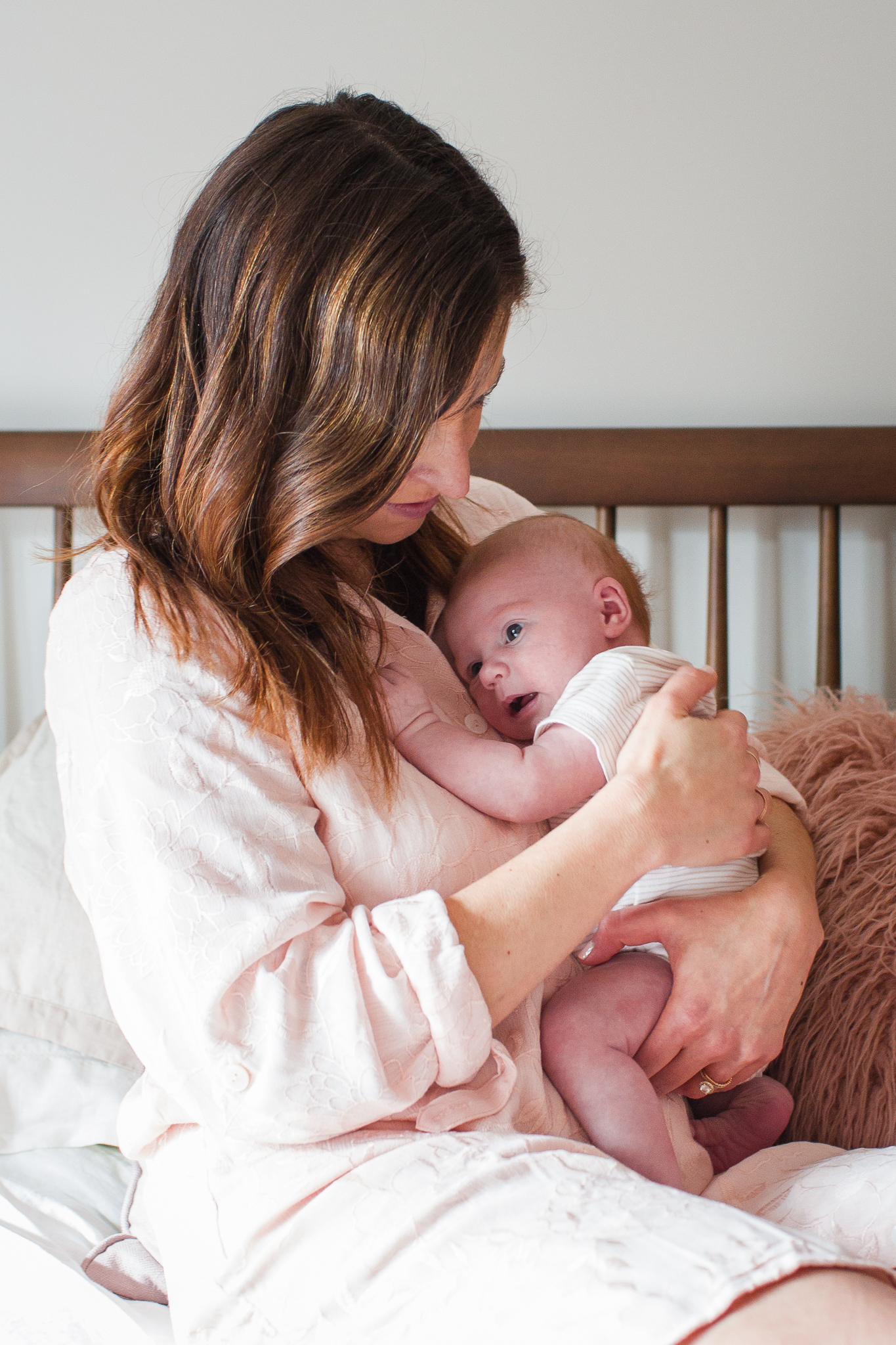
I had pretty intense anxiety for the first year while breastfeeding Piper and even experienced my first ever panic attack – I didn’t realize it until some time after that it was probably related to my hormones, since when I stopped breastfeeding things went back to “normal”. I remember reading a chapter in Mommy Group and having it resonate so clearly with me – I couldn’t figure out why I was suddenly so anxious every time I had to drive on the highway, I’ve never been a fan of highway driving but the anxiety was all consuming in a different way, unlike anything I’d ever experienced. I dealt with it the entire year I breastfed – and then it just stopped. I think many of us mothers forget how many changes our body is still going through after we give birth. I’m so glad that there is an open dialogue now about anxiety and depression in the postpartum period. I chatted with my friend Kelly, of Ritual Care about the topic and she’s giving her insight and advice below! You can read the other articles Kelly’s contributed to The Mama Notes below!
Everything You Need To Know About Postpartum Depression // Everything You Need To Know About Pregnancy
Anxiety vs. depression.
A significant hormonal shift occurs in connection with breastfeeding (plus, by the time that you stopped, you may have already developed a serious mama skill set!). Perinatal anxiety is more common than moms realize, but it’s often underreported or undiagnosed — and it’s no wonder! Signs of depression are more obvious because no one expects new parents to be sad. They expect happiness and gratitude for their new bundle of joy, not sadness (when there is actually room for all of it).
In contrast, everyone expects new parents to be a bit nervous, worried, stressed — this is a big job, a little person, and no complete handbook anywhere! Because some anxiety is expected, it can be harder to acknowledge and give ourselves care when we need to cope. To cope with anxiety, you first have to understand how it works us up into a tizzy.
So, what is anxiety?
Anxiety is caused by perceived danger. Our bodies tend to “speed up” so we can respond; the nervous system hits the gas and we go! Our heart race, our breathing and pulse gets faster, our minds start spinning. Then, our cerebral cortex – the front-most part of the brain responsible for complex thinking and decision-making shuts down. In neurophysiological terms, anxiety activates our “sympathetic” (fight or flight) system.
This is great if you are in actual danger and you need to move quickly. But this is rarely what’s happening. More likely, you got an upsetting text message, or the baby just won’t stop squawking and you don’t know how to help.
When we start to go too fast unnecessarily (just like when we drive), we need to slow down and coast again. Luckily, our nervous system also has a built in “brake” called the parasympathetic system.When we trigger the parasympathetic system, our body comes back into a more balanced state…and our thinking brain turns back on!
Coping with anxious feelings.
So, to qualm anxious feelings, you need to put your “foot on the brake”. The best way to do this, in fact, is through simple deep breathing. Breathing deeply and consciously literally turns on the parasympathetic nervous system. (Science!!!)
Otherwise, self-care is your best friend. Create doable, daily care rituals that help fill up your emotional bank account…before your overdrawn by obligations to others. Focus on what feels god, without feeling guilty. And practice being gentle with yourself, breathing your imperfections in and out. The more you practice your care, the more ingrained it becomes in your brain, because repeating the pattern creates neuronal connections that grow stronger with time.
I guide my own self-care clients and students using the “Corecare” Method – a framework I developed to make self-care clear and simple. You can download your own “Corecare” card in the Ritual Care Free Library and if you want more, sign up to get an invitation for the Corecare Online Program when it opens this year.
Tips For Coping With Anxiety During Postpartum
VIEW THE COMMENTS